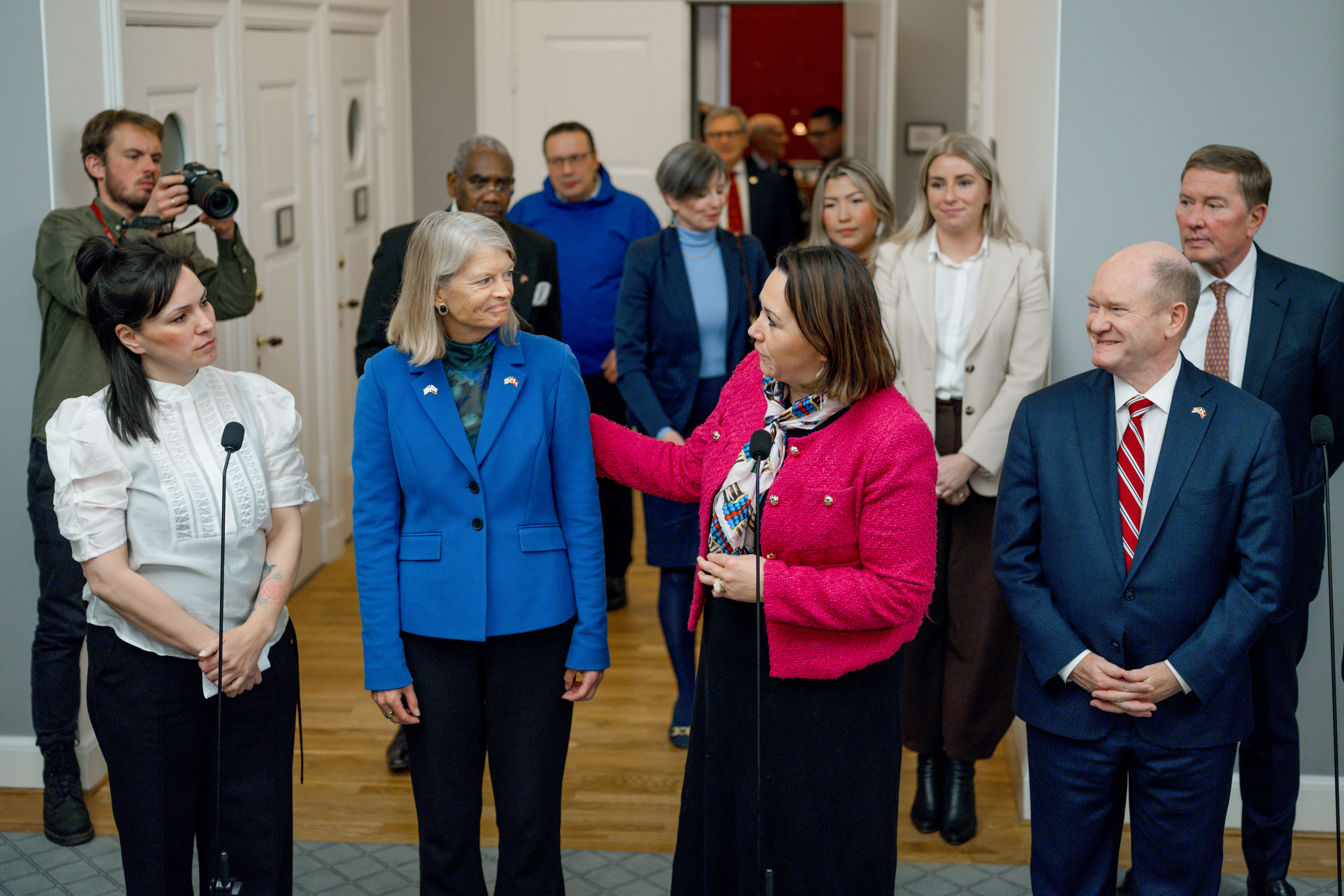Irondale police deny wrongdoing in death of Alabama man, dispute family’s account
This undated photo shows Sandra Lee Reeder and her husband, Phillip Reeder, who was killed on August 4, 2024 after a police officer restrained Phillip Reeder by pressing a knee to his neck.
By Safiyah Riddle
Police officers in Alabama who were involved in the arrest of a man who died while handcuffed were not at fault, officials said, disputing an account from the man’s family who are calling for the officers to be charged.
Police employed no excessive force in the events leading up to the August 2024 arrest and death of Phillip Reeder, 52, the City of Irondale and its police department said in a joint statement late Monday.
The Birmingham suburb’s announcement came hours after attorneys for Reeder’s family shared a county coroner’s report that said Reeder’s death was a homicide caused by a “combination of his heart disease, cocaine, injuries, and exertion from the altercation” with police.
Attorneys for the family said an police officer kneeled on Reeder’s neck and compared what happened to Reeder with what happened to George Floyd in 2020 — an incident that captured the country’s attention and renewed scrutiny of police practices. Reeder was white; Floyd was Black.
In autopsies, the term homicide has a medical definition that is different from a criminal one. In a medical context, homicide means that a death is caused at the hands of another person, but does not necessarily mean someone is criminally guilty.
Both the police department and Reeder’s wife, Sandra Lee Reeder, agree that police officers were dispatched to a local highway just after 5 a.m. on Aug. 6, 2024, after multiple 911 complaints of a man behaving erratically and running into traffic.
Reeder continued to run in the road, shouting, when officers approached him, ignoring “multiple commands to comply,” the city statement said. Officers then shocked Reeder with a Taser, saying he “posed a danger to himself and others.”
After officers handcuffed him, “Mr. Reeder continued to struggle and resist for almost two minutes,” the statement read. Officers used their arms to restrain Reeder, it said, but “No knee was placed in the back of his neck, and no excessive force was used.”
The statement emphasized that Reeder had a history of “hypertensive heart disease,” which the coroner said contributed to his death. The statement underscored the portion of the autopsy that said “the blunt force injuries alone would not account for Mr. Reeder’s death.”
It also said that the Alabama Law Enforcement Agency, the state agency tasked with investigating the incident, found no wrongdoing and that the Jefferson County District Attorney didn’t see evidence “sufficient for criminal charges” against the officers involved.
Reeder’s wife, Sandra Lee Reeder, offered an account Monday that was starkly different. She and her attorney say they saw body camera footage of the incident on July 18, after almost a year of asking the city and police department for more information on Reeder’s death.
The video showed “no attempt from the Irondale police officers to talk Phillip down,” Reeder’s wife said at a news conference. She said that her husband was unarmed and was suffering from a mental health crisis.
Sandra Lee Reeder said an officer put a knee on Reeder’s neck for approximately three minutes after he was shocked with the Taser. She said her husband can be heard saying “I can’t breathe” three times while he was restrained.
The body camera footage has not been released publicly because of an Alabama law that governs release of police recordings. The law says an agency may choose to not disclose a recording to the public if it would affect an active law enforcement investigation, but does not require an agency to provide a reason for denying a request.
Reeder’s family attorney, Roderick Van Daniel, has urged authorities to release the bodycam video to the public.
___
Riddle reported from Montgomery, Alabama. She is a corps member for The Associated Press/Report for America Statehouse News Initiative. Report for America is a nonprofit national service program that places journalists in local newsrooms to report on undercovered issues.
Italian fashion designer Valentino dies at 93
Garavani built one of the most recognizable luxury brands in the world. His clients included royalty, Hollywood stars, and first ladies.
Sheinbaum reassures Mexico after US military movements spark concern
Mexican President Claudia Sheinbaum quelled concerns on Monday about two recent movements of the U.S. military in the vicinity of Mexico that have the country on edge since the attack on Venezuela.
Trump says he’s pursuing Greenland after perceived Nobel Peace Prize snub
"Considering your Country decided not to give me the Nobel Peace Prize… I no longer feel an obligation to think purely of Peace," Trump wrote in a message to the Norwegian Prime Minister.
Trump has rolled out many of the Project 2025 policies he once claimed ignorance about
Some of the 2025 policies that have been implemented include cracking down on immigration and dismantling the Department of Education.
U.S. lawmakers wrap reassurance tour in Denmark as tensions around Greenland grow
A bipartisan congressional delegation traveled to Denmark to try to deescalate rising tensions. Just as they were finishing, President Trump announced new tariffs on the country until it agrees to his plan of acquiring Greenland.
Can exercise and anti-inflammatories fend off aging? A study aims to find out
New research is underway to test whether a combination of high-intensity interval training and generic medicines can slow down aging and fend off age-related diseases. Here's how it might work.








